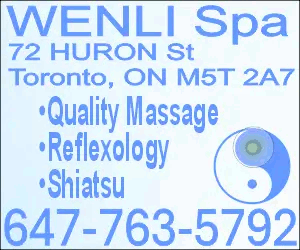
Some people don't know that massage therapy is a primary health-care profession included in the Regulated Health Professions Act (as are doctors, nurses, pharmacists etc.) that can provide evidence-based, effective, active rehabilitative care.
Practitioners in P.E.I. are reminding the public to consider their work during Massage Therapy Awareness Week, Oct. 25 to 31.
The therapy includes an assessment of the soft tissues and joints of the body and the treatment and prevention of physical dysfunction and pain of the soft tissues and joints by manipulation to develop, maintain, rehabilitate, or augment physical dysfunction, or to relieve pain.
The hands-on nature of massage therapy allows registered massage therapists (RMTs) the opportunity to spend more one-on-one time with their patients than some other regulated health-care professionals.
"Massage therapy is an effective way to find out more about what is happening to your body such as where there is dysfunction and how to manage it through active massage therapy treatment modalities and remedial exercises," said Stephanie Scharf, P.E.I. Massage Therapy Association president. "You’ll learn how to take better care of yourself and understand the value of both therapeutic intervention and preventative care."
RMTs are required to complete a minimum 2,200-hour course of study comprised of anatomy, physiology, pathology, kinesiology, microbiology, neurology, public health, jurisprudence, ethics, remedial exercises, in addition to the theory and practice of massage. RMTs must pass a provincial entrance to practise examination, hold general and professional liability insurance and engage in ongoing professional development in order to maintain registration with the College of Massage Therapists P.E.I. For more information, contact the P.E.I. Massage Therapy Association at peimta.com.









































































































